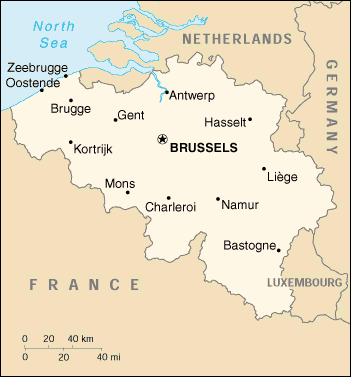Belgium

Belgium
History
The land known today as Belgium was conquered by Julius Caesar in the first century BC. Under the Roman Emperor Augustus, it was named Belgica. After the Franks conquered it, Belgica was part of one country or another for the next several hundred years. But in 1830, the people revolted and won independence, naming their new country Belgium.
Today, two people groups, Flemings and Walloons, inhabit the land. French, German, and Dutch are official languages. The government is comprised of a monarchial head of state, two-house legislature and a prime minister. Belgium is also a part of the European Union.
Church History
The Pentecostal movement in Belgium began in 1931 with a young Englishman, Douglas Scott. He was preaching near the Belgian border in Roubaix, France. Several Belgians attended and were miraculously healed. Scott was invited to Belgium to minister. After he arrived, several Protestant churches became Pentecostal and the number of new churches grew steadily. The movement in Belgium survived World War II and was named the Belgian Assemblies of God in 1965.
The Movement Today
The government allows freedom of worship and gives some financial assistance to recognized religions. Most of the population considers itself Roman Catholic, yet only 6.8 attend mass regularly. Only two percent of the population is Protestant, with 31 percent claiming to be atheistic or agnostic. The Fellowship of Flemish Pentecostal Churches and the Belgian Assemblies of God report the following combined statistics: 45 churches, 80 ministers, 5,830 members and adherents, one Bible school with 75 students, and one extension program serving another 80 students.
Additional Facts About Belgium
- Capital: Brussels
- Area: 11,787 square miles
- Population: 11.2 million
- Agriculture: Wheat, fruit, sugar beets, potatoes
- Industry: Metal products, glassware, automobiles, textiles, chemicals


